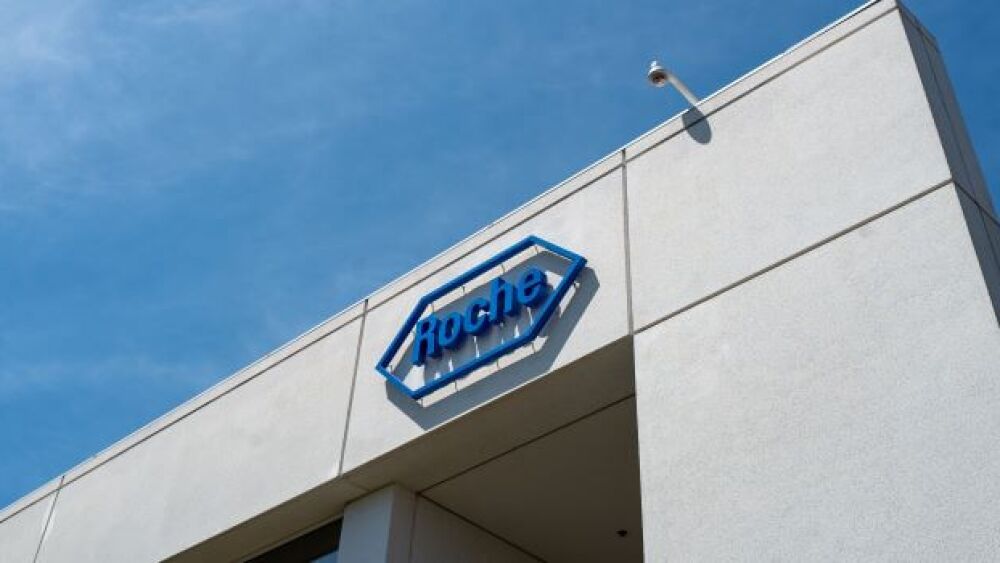Roche’s Tecentriq (atezolizumab) combined with Avastin (bevacizumab) met the primary efficacy endpoint in early-stage hepatocellular carcinoma in the Phase III IMbrave050 study.
Courtesy Smith Collection/Gado/Getty Images
Roche‘s Tecentriq (atezolizumab) combined with Avastin (bevacizumab) met the primary efficacy endpoint in early-stage hepatocellular carcinoma (HCC) in the Phase III IMbrave050 study, the company announced Thursday.
In a statement, Levi Garraway, M.D., Ph.D., CMO and head of global product development at Roche, said IMbrave050 is the “first Phase III study to show that a cancer immunotherapy combination reduced the risk of disease returning” in patients with early-stage HCC.
In this patient population, over 70% of patients eventually see cancer recurrence following surgery, which in turn leads to worse prognoses and shorter survival, Garraway added.
In the study’s intention-to-treat population, patients treated with the drug combo, developed by Roche subsidiary Genentech, showed significantly better recurrence-free survival than those assigned to active surveillance. Overall survival data were immature at the time of the pre-specified analysis and patient follow-up will continue until the next analysis.
The study enrolled more than 660 patients with early-stage HCC deemed to be at high risk of recurrence after surgical resection or curative ablation.
Aside from key efficacy measures, IMbrave050 also evaluated the safety profile of the drug combo which, by the time of the pre-specified analysis, was consistent with what had previously been established.
Roche is preparing to submit data from IMbrave050 to health regulatory authorities including the FDA and European Medicines Agency.
HCC Space Heating Up
Thursday’s promising Phase III performance is the latest HCC win for Tecentriq and Avastin. According to data from the IMbrave150 study, the drug combo is the first treatment option in over a decade to confer significant overall survival benefit over standard of care in unresectable HCC.
Joining Roche in the HCC space is AstraZeneca, whose own drug combo of Imjudo (tremelimumab) and Imfinzi (durvalumab) recieved FDA approval in unresectable HCC last October 2022.
Data from the Phase III HIMALAYA trial, the basis for the regulatory nod, showed that one priming dose of the combination treatment cut the risk of death by 22% compared with Bayer’s Nexavar (sorafenib).
Novartis, along with Chinese collaborator BeiGene, is also a dominant presence in the HCC space. Last August 2022, the partners reported that investigational antibody tislelizumab hit its primary efficacy endpoint in the Phase III RATIONALE 301 trial, demonstrating non-inferior overall survival to Nexavar. Tislelizumab is being trialed for unresectable HCC.






